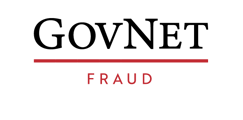Why should you collaborate to prevent fraud? Currently, cases of fraud are on the rise. Cifas, the fraud prevention service, has seen the number of cases of fraud reported to the national database soar over the last few years.
“Before the pandemic, the scale of fraud against the public purse was already being described as a heist on public services,” said Mike Haley, Chief Executive at Cifas. “But the pandemic has seen criminals look for new ways to commit fraud, including attempts to divert bounce-back loans and stimulus-related grants into the bank accounts they control.”
In his talk, "How LAs can collaborate to prevent fraud" held at Counter Fraud 2021, he described how and why local authorities should collaborate to lessen the amount of fraud occurring against the public sector today.
He noted a number of ways local authorities can actively work towards reducing fraud:
- Actively sharing data and knowledge.
- Put aside competitive instincts and share best practice.
- Put in the time and effort that collaboration requires.
This is part of the ‘Six Cs’ - culture, capability, capacity, competence, communication and collaboration.
So Why Collaborate?
It isn't always easy, requiring work and sometimes ending up in frustration. “Most importantly,” Haley revealed, “It requires trust, trust in each other, trust to share our issues, to share the fact that we have fraud and that we don’t always have the answers.”
He also revealed that for collaboration to be effective, there must be trust within information sharing, alongside the right infrastructure in which to share that information.
“That includes the right forums and the right platforms where we can guarantee the security of the information that we share and the security of personal information... and that we can share that information in a secure and legal manner.”
How Is Collaboration Achieved?
Haley explained the infrastructure is already being used. Local authorities have access to:
- FFCL Regional Group
- Cifas for Local Authorities
- NAFN
- Organised Fraud Intelligence Groups (OFIG)
As an example of good collaboration, when local authorities were tasked with administering the COVID-19 stimulus grants, Cifas offered those authorities the opportunity to screen applicants against the national fraud database.
“When one grant applicant was searched against the database, it returned five cases - these are five cases of fraud detected by other members. All these cases highlighted that the individual had previously been a victim of identity fraud.”
“It was then found that there were two grant applications in the name of this individual and the first application was then declined due to suspicions around the bank details provided.”
It’s clear that having access to fraud data from other organisations helps to identify fraudulent applicants across the board.
While the cases of fraud have increased over the last 12 months due to the COVID-19 pandemic and subsequent government support schemes, this has allowed local authorities to better use the tools available to them. “For the first time,” continued Haley, “Local authorities and financial institutions have been collaborating through Cifas to share intelligence and data to detect and prevent fraud.
“I think we have a better understanding and appreciation of both the public and private sector collaborating.”
If you’d like to learn more about using collaboration to help prevent fraud, watch the video in full here.
In an effort for public sector professionals to better understand and identify fraud, alongside working with preventative best practices, the webinars from Counter Fraud 2021 are available to watch on-demand.
In the talks, you'll hear about collaborations and partnerships, how better use of data and intelligence make a real difference and how the government is working internationally in the COVID-19 counter-fraud response. Visit the event website to get access.
Jessica Kimbell, GovNet

